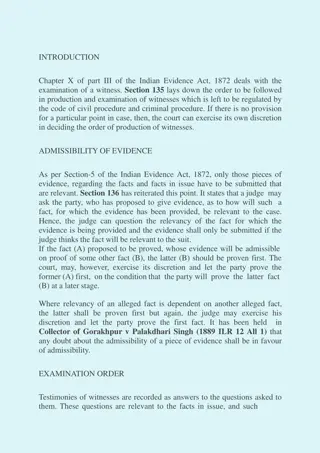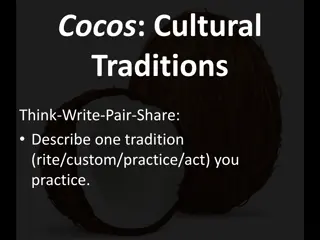Fox Divination and Superstition in Meiji Japan: A Cultural Examination
Explore the intersection of religion, superstition, and government control in Meiji Japan, focusing on the practice of fox divination and its ban due to being perceived as superstitious and dangerous. Examine how beliefs in possession by spirit foxes clashed with modernization efforts and scientific thinking during that era.
Download Presentation

Please find below an Image/Link to download the presentation.
The content on the website is provided AS IS for your information and personal use only. It may not be sold, licensed, or shared on other websites without obtaining consent from the author. Download presentation by click this link. If you encounter any issues during the download, it is possible that the publisher has removed the file from their server.
E N D
Presentation Transcript
Religion vs Superstition Fox divination and fox cult in Meiji Japan Larissa Redditt (IEHE)
Context Meiji Japan Modernizing efforts - science Secularization Concept of religion Concept of superstition Dicothomy Superstition vs civilization
What is superstition Secular real Religion Superstition Entangled categories Josephson s model
Fox divination Folk beliefs Magical elements Possession a human by a spirit fox, who would talk through the human medium Relation with the deity Dakini kitsune-tsukai Possession would happen not only for divination
Government ban Local religion as backward and against science Fox divination considered dangerous and later related to superstition 1873 proclamation bans fox summoning and other revelations by means of possession Also a matter of control Existence is not denied they only prohibit the practice Newspapers continue to report on fox summoning rituals Fox possession as mental illness western medicine De facto criminalization of fox possession People diagnosed as possessed by foxes -> asylum Later: worries about people believing in such things as fox possession a matter of inner belief
References JOSEPHSON, Jason nanda. The Invention of Religion in Japan. University of Chicago Press, 2012.























